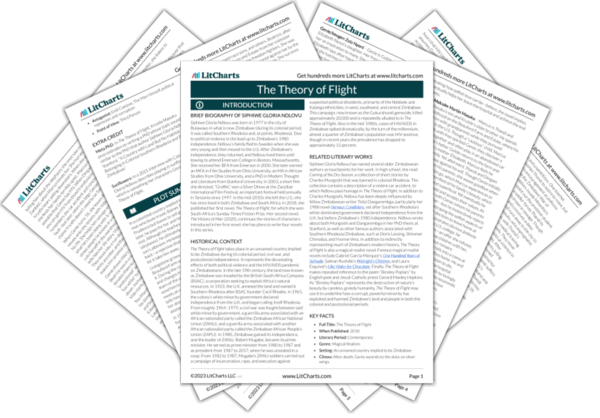The 1976 song “Calling Occupants of Interplanetary Craft,” originally by Canadian band Klaatu, was covered in 1977 by The Carpenters, an American musical group consisting of siblings Karen and Richard Carpenter. Karen Carpenter died in 1983 of heart complications related to anorexia—a condition, like Genie’s HIV, that exists at the intersection of sociopolitical issues and deeply personal issues such as sex, gender, and the body. When Marcus dreams of Genie singing with Karen Carpenter’s voice, it may imply that he intuits she’s dying or that, despite his romantic attachment to her, he thinks of her as his quasi-sister (Karen famously being part of a sister-brother duo). Thandi’s brusque claim that Marcus doesn’t need to come home, meanwhile, illustrates the emotional coldness characteristic of the Masukus’ family relationships.
